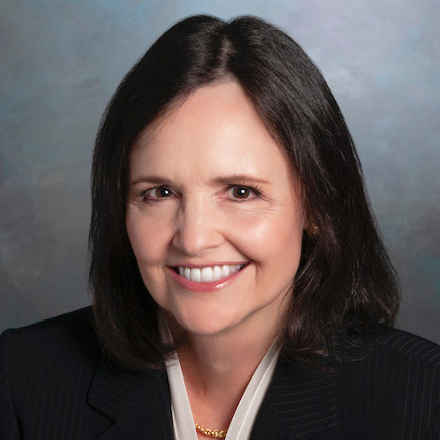“Manipulating currencies is not the approach that produces long-run prosperity.” So said Lawrence Summers last week during his first television interview as Treasury secretary. More than a few mouths undoubtedly fell open.
Not that the idea behind the statement is so shocking. Why shouldn’t we expect government authorities to recognize that a stable monetary regime provides the best foundation for profitable enterprise and sustained economic growth? It is just that intellectual fashion and official practice have moved so far away from that concept during the final few decades of this century.
Skeptics can be forgiven for questioning whether Mr. Summers was confessing to a genuine change in his own monetary philosophy or merely taking a dig at Japan for its current policy of cheapening the yen to maintain high exports. Mr. Summers has long been an advocate of currency depreciation as a remedy for economic stagnation. But perhaps we are witnessing the dawning of a new Summers doctrine born of personal observation, analysis and reconsideration. As John Maynard Keynes famously retorted after being accused of inconsistency in his economic prescriptions: “When my information changes, I alter my conclusions. What do you do, sir?”
Hints that conclusions were being altered at Treasury in light of recent global experience have been apparent since April, when Mr. Summers’ predecessor, Robert Rubin, gave a major speech outlining U.S. proposals to reform the international financial architecture.
The overall goal, Mr. Rubin explained, was to promote global growth while reducing the likelihood of crisis. This required special attention to exchange-rate regimes. “The costs of failed regimes,” said Mr. Rubin, “can be significant not only for the countries involved but also for other countries and for the system as a whole.” While some countries might choose fixed exchange rates, others might choose to have floating rates. Bottom line: “The right exchange rate regime is a choice for the individual country.” The only wrong monetary regime would be one based on an exchange rate “peg” that was unrealistic and unsustainable—in which case, Mr. Rubin warned, there should be no expectation of large-scale official financial assistance from the international community. Mr. Summers will no doubt continue in this same policy vein.
The good news is that the message has now been broadcast that burning up billions in foreign reserves in an effort to intimidate currency markets often proves futile. Speculative plays can quickly overwhelm central-bank tweaking. The bad news, however, is that the U.S. seems to be suggesting a sort of moral equivalence between fixed and floating rates. By effectively allowing emerging-market nations to choose their own exchange-rate regime, we are sidestepping the question of how best to facilitate their solid integration into the global marketplace and expand their access to global capital markets. In a world dominated by three major currencies—the dollar, the euro and the yen—emerging-market countries with floating rates, cast adrift by a seemingly benign U.S. policy, have no anchor to secure their position in the roiling seas of global finance.
Meanwhile, it is distressing to see a nation like Argentina, which has stalwartly maintained a currency-board system that backs every issued peso with U.S. dollar reserves, get pummeled by political uncertainties and rogue financial waves. Thus, even though the collapse of the Brazilian real constituted a monetary failure for Brazil, it has also imposed costs on Argentine exporters who are now paying a heavy price to maintain dollar parity. In short, it is not just illogical but irresponsible to suggest that every nation should feel free to choose its own “right” exchange-rate regime as if it were selecting new drapes.
Sound money and accurate price signals are the ultimate form of financial transparency. International monetary order and full economic integration will be achieved only if all nations agree to abide by the same rules for establishing the value of their currencies. Money, after all, is meant to serve as the unit of account. It enables us to measure the value of competing goods, services and investment opportunities throughout the world. The value of money itself should not be subject to flexible interpretations and varying criteria. In the absence of an international monetary system, currencies do not effectively convey useful information about opportunities available in the international marketplace, but rather become an investment gamble in themselves. Witness the explosive growth in foreign-exchange market activity, which now exceeds $1.6 trillion in daily turnover.
Nations are not liberated by the right to choose an exchange-rate regime; they are alienated. If the goal is to have a global common market—and what else can we mean when we talk about the global economy, especially with the explosive growth of electronic commerce—how can we ignore the parallel need for a common unit of account, a global form of money?
This need not be a single currency; the virtue of the gold standard was that it allowed each nation to issue its own currency while ensuring stable rates, since all currencies were convertible at a fixed rate into gold. The critical issue is whether there exists any kind of monetary order or set of rules by which the concept of a meaningful unit of account can be preserved. Under the system established in 1944 at Bretton Woods, N.H., nations maintained their own currencies at fixed rates relative to the dollar, while the U.S. agreed to convert the dollar into gold at a fixed rate. But the drift toward chronic U.S. budget deficits in the 1960s compromised the integrity of the dollar and doomed the system.
Today the U.S. has put its own financial house in admirable order. We are in a position to help other nations—particularly the less developed ones—become integrated into the global economy. The same cannot be said for the other big players, Europe and Japan, which are too preoccupied with their own financial woes to extend a helping hand to less wealthy nations. And so it falls to the U.S. to provide meaningful direction toward the establishment of a new global monetary system.
One thing, at least, should be clear: So long as developing countries are stuck with boutique currencies that are easily shredded by speculators, there is little chance they will be able to establish themselves firmly in the international financial community. Mr. Summers, who has finally seen the light on the pitfalls of currency manipulation, is now well-positioned to prescribe the remedy. Let’s hope recent experience has taught him to pick the right one.









